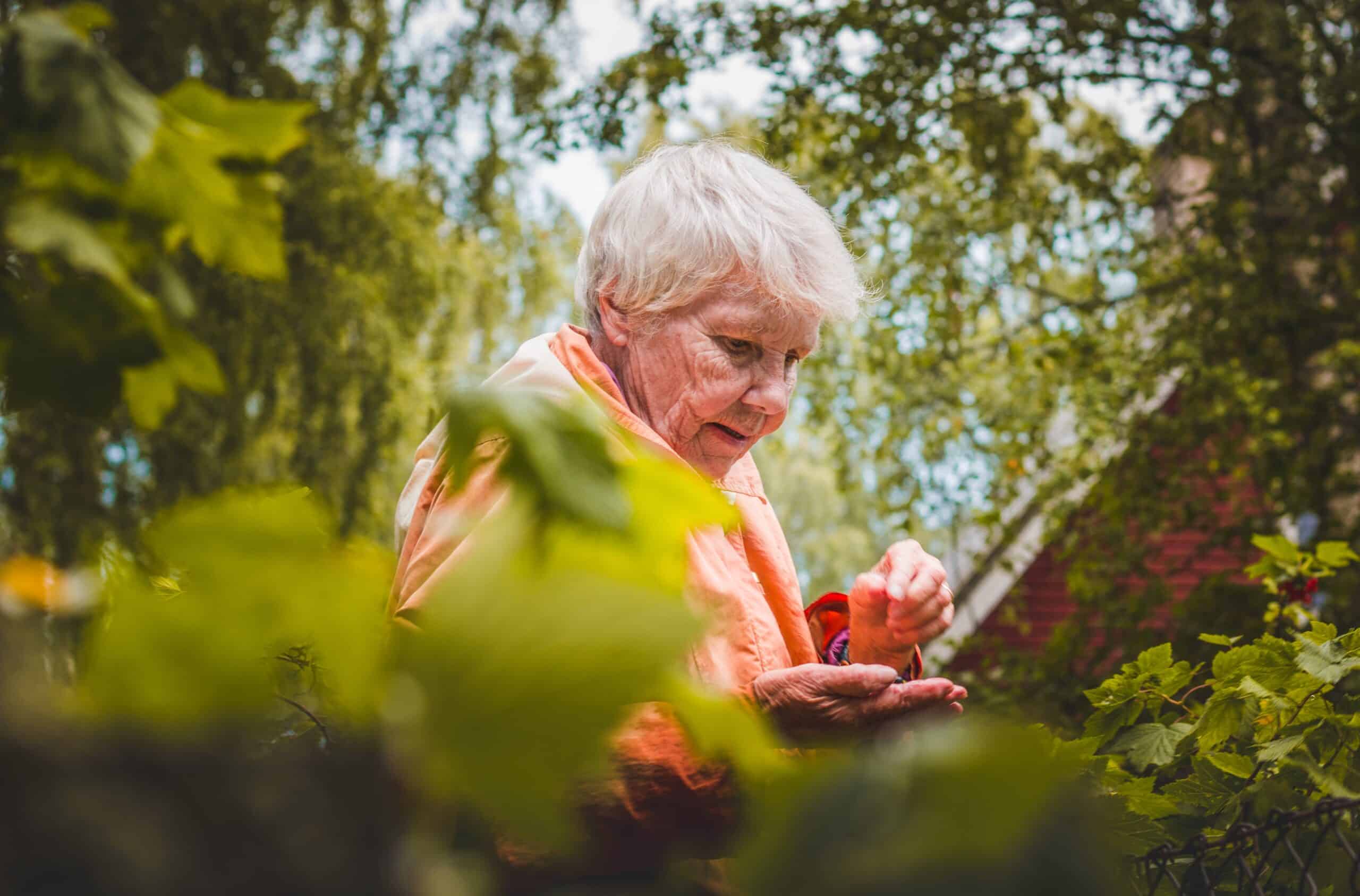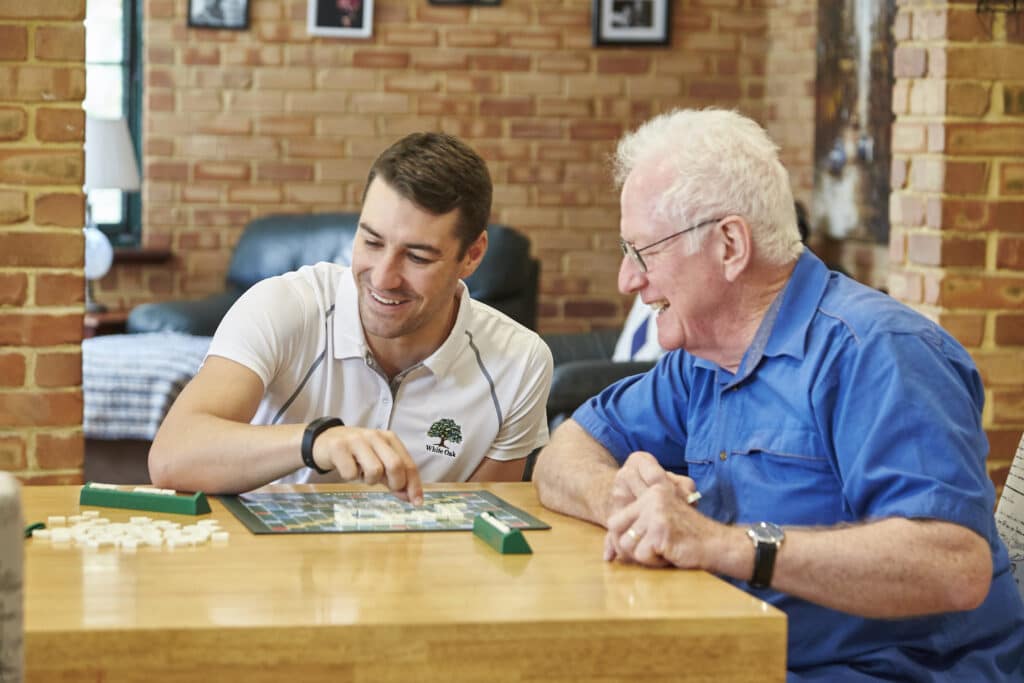White Oak Home Care Services expands its community involvement by managing the Villa Dalmacia Day Centre in Spearwood. Supported by Hall & Prior, it provides culturally appropriate care for clients with Italian, Croatian, and Portuguese heritage, fostering a vibrant hub of culture and community.
Understanding the Difference Between In-Home Care and Assisted Living
What is the difference between in-home care and assisted living?
If you’re looking into different options for providing care for your ageing loved ones, you may be wondering what the actual differences are between these types of care. Understanding the difference will ensure that you and your family are able to make informed decisions about which care is right for your loved one’s needs, preferences and circumstances.
In this blog, we’ll clarify the distinctions and similarities between in-home care and assisted living to empower you to make the right choice for your family.
As always, if you’re still unsure about which form of care is most suitable for your needs, make sure to reach out to the White Oak team today.
In-Home Care vs Assisted Living
Understanding In-Home Care
The term ‘in-home care’ refers to the provision of professional caregiving in the context and comfort of the elderly individual’s own home.
While the care provided can range–including anything from assistance with daily activities and chores to medication management, and even just companionship–the key to effective in-home care is personalised services to suit the specific needs of your loved one.
Of course, having this care in one’s home provides a sense of comfort and ongoing independence but with the adequate level of support for health, wellbeing and safety.
Understanding Assisted Living
‘Assisted living’, on the other hand, refers to the provision of professional caregiving in the context of a residential community or ‘retirement village’. Caregivers in an assisted living arrangement are also able to provide support for a range of daily activities whilst maintaining the individual’s level of independence.
The key difference here is that the care and living is taking place in the context of a residential community. As such, while there is a private living space as well, there are also communal amenities, such as a dining hall and social activities clubs.
The onsite staff are available to assist the residents of the community with their care related needs to the extent and of the type required by each individual specifically.
Which form of care is right for your loved one?
Ultimately, there is no right or wrong answer to this question. You and your loved one should have a conversation about the type of care you’re after and the specifics of your needs and preferences.
To help guide your discussion and decision, here are the key considerations when choosing between in-home care and assisted living.
1. Which location do you prefer?
Both in-home care in your loved one’s own home and assisted living in a dedicated community offer benefits. \
In-home care allows a measure of independent living to be retained and the familiar environment can be emotionally and physically comforting. On the other hand, the facilities and amenities of a residential community can offer a form of care services that may be more suitable for your loved one’s specific requirements.
2. How much independence is desired?
Independence is a good thing, but so is ensuring that your ageing loved one is sufficiently taken care of. In-home care does allow elderly individuals to retain a greater sense of independence, including control of their daily routines and their environment. Assisted living also offers an element of independence but to a lesser degree as the setting is different.
Both forms of care offer a careful balance between sufficient support and dignified independence, so this consideration may ultimately come down to personal needs, preferences and priorities.
3. What sort of care is required?
The ultimate goal of all elderly caregiving is to provide the right sort of care tailored to the individual’s specific needs.
In-home care, by nature of being in your loved one’s home, provides scope to tailor the services to their needs in a more controllable environment. Caregivers often assist with things such as bathing and dressing, cleaning and laundry, and meal and medication prep. In an assisted living arrangement, many of these services are provided for by the institution, with caregivers available to assist with personal requirements, medication, transport and social activity participation as required.
4. What are your financial considerations?
In-home care and assisted living don’t just differ in terms of scope and activity but cost structure as well.
Typically, in-home care is billed on an hourly or shift basis. This often aligns with home care packages available through government services as well.
Assisted living, in contrast, involves a monthly fee that covers accommodation, meals, and the allocated level of care services.
Beyond this distinction, location and intensity of care can vary the cost of services. If you’d like to know more about the specific financial implications of the different services available, the White Oak team is here to help.
5. What are your loved one’s social preferences?
In-home care, by its nature, is primarily focused on one-on-one care. This can limit social interaction unless additional and proactive efforts are made otherwise.
If your ageing loved one would like social interaction and would prefer an arrangement that fosters easier participation in communal activities, assisted living fosters such opportunities in a custom-built and run environment.
6. What are you and your loved one’s particular needs?
Flexibility and customisation are important when it comes to aged care. While both in-home and assisted living packages offer some degree of customisation, the former allows for greater adjustments of care hours and services based on changing or developing needs.
Assisted living provides care in a more structured care environment with greater predeterminations of services and amenities. There is still plenty of scope for flexibility within this structure, but by its nature it is not as customisable as in-home care.
Understanding your options
Both in-home care and assisted living comes with advantages and compromises. The right choice will depend on a multitude of factors. The important consideration is what is right for your needs and the needs of your loved one.
If you need further assistance understanding your options click here or give the White Oak team a call on 9301 0299 today for a confidential, no pressure discussion.





